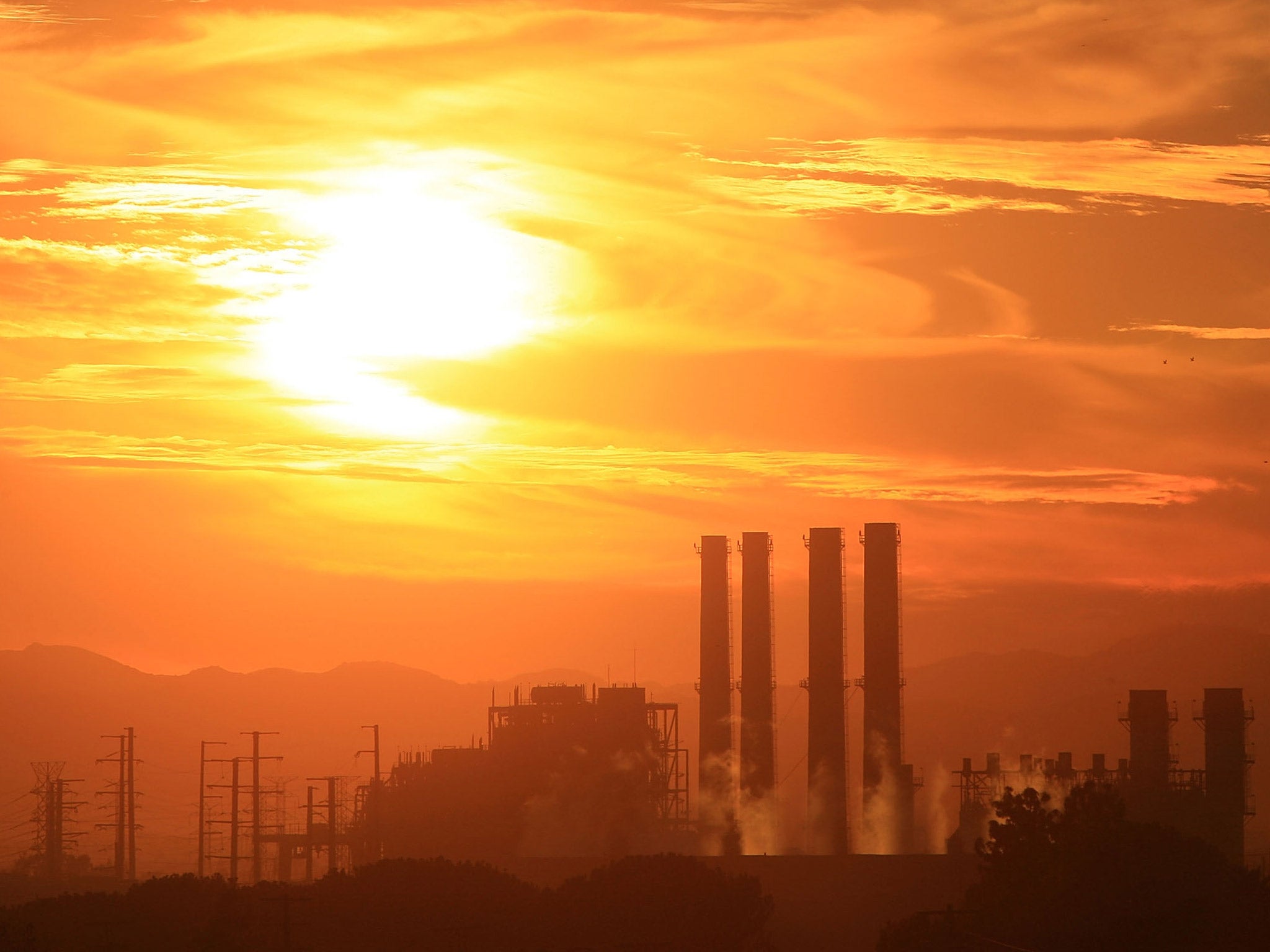The world is hottest it has been since the end of the ice age - and the temperature's still rising
Report claims that by the year 2100 the earth will see temperatures not seen since the dawn of civilisation

The world is now warmer than at almost any time since the end of the last ice age and, on present trends, will continue to reach a record high for the entire period since the dawn of civilisation, a study has found.
A reconstruction of global temperatures going back 11,300 years, which covers the historical period from the founding of the first ancient cities to the space age, has concluded the biggest and most rapid change in the climate has occurred in the past century.
Scientists found that the warm period following the end of last ice age, called the Holocene, peaked about 5,000 years ago when the world began to get cooler. However, this cooling went into a dramatic and sudden reversal about a century ago when global temperatures shot up to levels not seen for thousands of years, the scientists found.
The study, published in the journal Science, further undermines the frequent argument put forward by climate “sceptics” that global temperatures now are no higher than they were in previous centuries, long before the increase in industrial emissions of carbon dioxide.
It also found that if carbon dioxide emissions continue to increase, even at the more moderate levels predicted by some climatologists, global temperatures by 2100 will have reached levels not seen at all during the entire period when humans developed agriculture, invented writing, first practised science and started the industrial revolution.
“We are heading for somewhere that is far off from anything we have seen in the past 10,000 years – it’s through the roof. In my mind, we are heading for a different planet to the one that we have been used to,” said Jeremy Shakun of Harvard University, a co-author of the study.
Previous studies have attempted to estimate global temperatures over the past 2,000 years using “proxy” records, such as tree rings and pollen samples, in place of direct readings, which only began with the invention of thermometers in the 19th Century.
“We already knew that on a global scale, Earth is warmer today than it was over much of the past 2,000 years,” said Shaun Marcott of Oregan State University in Corvalis, the lead author of the study of global temperatures.
“Now we know that it is warmer than most of the past 11,300 years. This is of particular interest because the Holocene spans the entire period of human civilisation,” Dr Marcott said.
The latest study extended the proxy temperature record back to the end of the ice age using data gathered from 73 sites around the world, based mainly on extrapolations of temperatures from fossils recovered from cores drilled into ocean sediments, as well as other terrestrial archives.
The scientists said that the chemical and physical characteristics of the fossils, which included the type of species and the isotopic composition of the material, can provide a reliable estimate of surface temperatures at that site when these life-forms were alive.
The study concluded that global temperatures gradually rose after the end of the ice age for about 6,000 years due to changes in the tilt of the Earth’s axis, which brought more solar radiation to the northern hemisphere in summer.
This warming trend reached a peak about 5,000 years ago when cooling began to lower average global temperatures by about 0.8C. However, around the start of the 20th Century this trend went into reversal, with global temperatures increasing by 0.8C – but over decades rather than millennia.
“Global temperature, therefore, has risen from near the coldest to the warmest levels of the Holocene within the past century, reversing the long-term cooling trend that began about 5,000 years before present,” the study says.
Candace Major, program director of the US National Science Foundation, which funded the study, said: “This research shows that we’ve experienced almost the same range of temperature change since the beginning of the industrial revolution as over the previous 11,000 years of Earth history – but this change happened a lot more quickly.”
Subscribe to Independent Premium to bookmark this article
Want to bookmark your favourite articles and stories to read or reference later? Start your Independent Premium subscription today.

Join our commenting forum
Join thought-provoking conversations, follow other Independent readers and see their replies